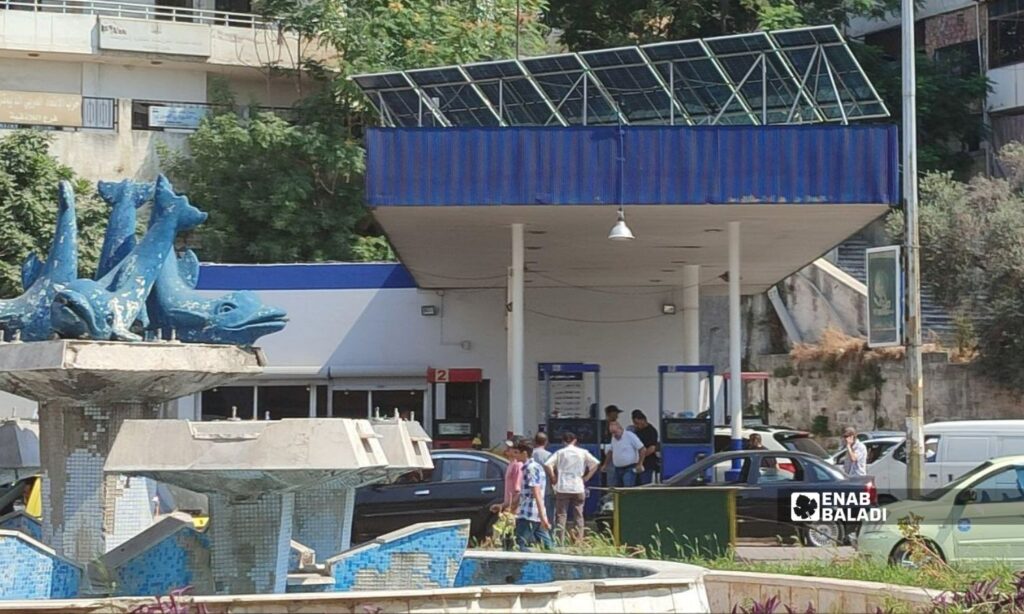The Ministry of Internal Trade and Consumer Protection in the Syrian regime government has raised the selling prices of some types of fuel, increasing some by nearly 1,000 Syrian pounds from the previous price.
According to the bulletin issued by the ministry today, Friday, November 1, the selling price of a liter of Octane 95 gasoline is set at 13,500 Syrian pounds, up from 12,573 pounds.
The selling price of a liter of Octane 90 gasoline is set at 11,500 Syrian pounds, up from 10,966 pounds.
According to the new bulletin, the cost of filling a car to the amount allowed by the ministry for each vehicle, set at 25 liters, has reached 287,500 Syrian pounds, an amount that equals the minimum wage in regime-controlled areas.
The ministry also raised the selling price of unsubsidized diesel to 11,500 Syrian pounds per liter, up from 11,183 pounds.
In a separate bulletin, the ministry increased the selling prices of domestic and industrial gas cylinders.
According to the bulletin, the selling price of a domestic gas cylinder (unsubsidized price) with a capacity of 10 kilograms, whether through the smart card or not, which is sold to those excluded from support, governmental departments, and employees of the Ministry of Petroleum and Mineral Resources, has reached 150,000 Syrian pounds, up from 130,000 pounds.
As for the industrial gas cylinder, through or outside the electronic smart card, with a capacity of 16 kilograms, its price has reached 240,000 pounds, up from 206,000 pounds.
No end to the fuel crisis
A source at the Baniyas refinery denied the circulating news on social media regarding the end of the fuel crisis that has persisted for months and the increase in its production in the upcoming period.
The source stated in a press statement to the local Al-Khabar television that “what is circulating has no basis in truth, and the Baniyas refinery has not issued such statements to anyone, and that the production quantities remain the same; there are currently no maintenance works.”
The government issues periodic price bulletins (every 15 days) in the areas under its control, which include updates based on global fuel prices.
The government distributes fuel allocations to residents in its controlled areas in a regulated manner, forcing them to turn to the black market to meet their needs, where prices vary based on demand, and the availability of subsidized materials, soaring during repeated fuel crises, while decreasing when supplies are regularly available.
The prices of most consumer goods are affected by the increase in fuel prices, amidst a decline in purchasing power for the population and the deterioration of the economic situation, as many families rely on remittances from Syrians living abroad to secure the minimum requirements for living.

